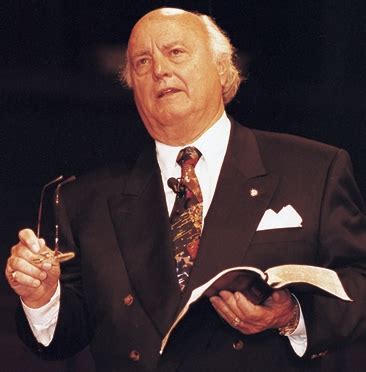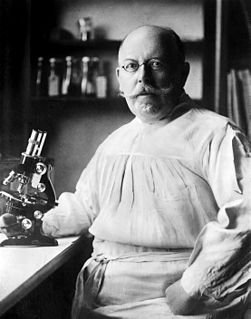Top 630 Behaviour Quotes & Sayings - Page 11
Explore popular Behaviour quotes.
Last updated on April 17, 2025.
Small Man can be a very funny or a very tiresome Tour Companion, depending on how this kind of thing grabs you. He gambles, he drinks too much and he always runs away. Since the Rules allow him to make Jokes, he will excuse his behaviour in a variety of comical ways. Physically he is stunted and not at all handsome, although he usually dresses flamboyantly. He tends to wear hats with feathers in. You will discover he is very vain. But, if you can avoid smacking him, you will come to tolerate if not love him. He will contrive, in some cowardly way, to play a major part in saving the world.
It was as if personality itself had a 'face'. This non-physical face of personality seemed to be the real key to personality change. It remained scarred, distorted, 'ugly' or inferior the person himself acted out this role in his behaviour regardless of the changes in physical appearance. If this 'face of personality' could be reconstructed, if old emotional scars could be removed, then the person himself changed, even without facial plastic surgery.
Anger is active sadness; sadness is inactive anger. They are not two things. Watch your own behaviour. When do you find yourself sad? You find yourself sad only in situations where you cannot be angry. The boss in the office says something and you cannot be angry; it is uneconomical. You cannot be angry and you have to go on smiling - then you become sad. The energy has become inactive. You come home, and with your wife you find a small thing, anything irrelevant, and you become angry.
There is, however, one feature that I would like to suggest should be incorporated in the machines, and that is a 'random element.' Each machine should be supplied with a tape bearing a random series of figures, e.g., 0 and 1 in equal quantities, and this series of figures should be used in the choices made by the machine. This would result in the behaviour of the machine not being by any means completely determined by the experiences to which it was subjected, and would have some valuable uses when one was experimenting with it.
That the boat did not upset I simply state as a fact. Why it did not upset I am unable to offer any reason. I have often thought about the matter since, but I have never succeeded in arriving at any satisfactory explanation of the phenomenon. Possibly the result may have been brought about by the natural obstinacy of all things in this world. The boat may possibly have come to the conclusion, judging from a cursory view of our behaviour, that we had come out for a morning's suicide, and had thereupon determined to disappoint us. That is the only suggestion I can offer.
Now the man on duty used to be changed from time to time. Once one of these men, without giving me the slightest warning, without even asking me to leave the footpath, pushed and kicked me into the street. I was dismayed. Before I could question him as to his behaviour, Mr Coates, who happened to be passing the spot on horseback, hailed me and said: 'Gandhi, I have seen everything. I shall gladly be your witness in court if you proceed against the man. I am very sorry you have been so rudely assaulted.'
I will continue to work for the advancement of freedoms in Egypt and the Arab world until I drop dead... Education itself - which can and should play an important role in the apprenticeship of tolerance and respect for other people -sometimes encourages identitarian closure, or even extremist behaviour... It is therefore vital to ensure that education does not encourage rejection of other people or identitarian closure, but that on the contrary it encourages knowledge and respect for other cultures, other religions and other ways of being and living.
Many aspects of our screen-bound lives are bad for our social skills simply because we get accustomed to controlling the information that comes in, managing our relationships electronically, deleting stuff that doesn't interest us. We edit the world; we select from menus; we pick and choose; our social 'group' focuses on us and disintegrates without us. This makes it rather confusing for us when we step outdoors and discover that other people's behaviour can't be deleted with a simple one-stroke command or dragged to the trash icon.
Bypass surgery, angioplasty,and even diagnostic angiograms are so over used that, in my opinion, it constitutes criminal behaviour by the cardiologists and surgeons involved. Well controlled scientific studies have shown bypass surgery simply doesn't work, except to relieve severe chest pain. Those who have the surgery didn't even have a trend of longevity benefit compared to those treated without it. Yet, each year hundreds of thousands cave into the obvious fear tactics used by agressive heart doctors and submit to the bypass operation
The evidence here, as elsewhere, suggests that education is certainly relevant, but more because better education is associated with general differences in patterns of life than because discrete parts of a lifestyle can be changed. Health-change policies which focus entirely on the individual may be ineffective not only because exposure to health risks is largely involuntary, but also, as this study has shown, because of unwarranted assumptions about the extent to which behaviour can, in these circumstances, be effective in improving health.
People who expect to feel guilty tend to be more sympathetic, to put themselves into other people's shoes, to think about the consequences of their behaviour before acting, and to treasure their morals. As a result they are less prone to lie, cheat or behave immorally when they conduct a business deal or spot an opportunity to make money, studies suggest. They are also likely to make better employees because people who think less about the future results of their actions are more likely to be late, to steal or to be rude to clients.
Human behaviour reveals uniformities which constitute natural laws. If these uniformities did not exist, then there would be neither social science nor political economy, and even the study of history would largely be useless. In effect, if the future actions of men having nothing in common with their past actions, our knowledge of them, although possibly satisfying our curiosity by way of an interesting story, would be entirely useless to us as a guide in life.
We are separated from one another by an unbridgeable gulf of otherness and strangeness which resists all our attempts to overcome it by means of natural association or emotional or spiritual union. There is no way from one person to another. However loving and sympathetic we try to be, however sound our psychology however frank and open our behaviour we cannot penetrate the incognito of the other man, for there are no direct relationships, not even between soul and soul. Christ stands between us, and we can only get into touch with our neighbors through Him.
The technologies that will be most successful will resonate with human behaviour instead of working against it. In fact, to solve the problems of delivering and assimilating new technology into the workplace, we must look to the way humans act and react. In the last 20 years, US industry has invested more than $1 trillion in technology, but has realised little improvement in the efficiency of its knowledge workers and virtually none in their effectiveness. If we could solve the problems of the assimilation of new technology, the potential would be enormous.
The unwritten rules of behaviour are infinite in number, finely shaded, and subtle to the last fraction of a degree. They are not to be broken. If broken, the rules of forgiveness leading to re-establishment are equally of air and iron. I learn these rules with rather less ease than my contemporaries because, in the back streets of my being, a duel is developing and increasing in fervour between my instinct which knows why something is so, and my hen-pecking intelligence which wishes to analyse why something is so.
Was Mrs. Wilcox one of the unsatisfactory people- there are many of them- who dangle intimacy and then withdraw it? They evoke our interests and affections, and keep the life of the spirit dawdling around them. Then they withdraw. When physical passion is involved, there is a definite name for such behaviour- flirting- and if carried far enough, it is punishable by law. But no law- not public opinion, even- punishes those who coquette with friendship, though the dull ache that they inflict, the sense of misdirected effort and exhaustion, may be as intolerable. Was she one of these?
My philosophy is that I am a friend of the children. I don't think anyone should see them as pitiable subjects or charity. That is old people's rhetoric. People often relate childish behaviour to stupidity or foolishness. This mindset needs to change. I want to level the playing field where I can learn from the children. Something I can learn from children is transparency. They are innocent, straightforward, and have no biases. I relate children to simplicity and I think that my friendship with children has a much deeper meaning than others.
The emergence of a unified cognitive moment relies on the coordination of scattered mosaics of functionally specialized brain regions. Here we review the mechanisms of large-scale integration that counterbalance the distributed anatomical and functional organization of brain activity to enable the emergence of coherent behaviour and cognition. Although the mechanisms involved in large-scale integration are still largely unknown, we argue that the most plausible candidate is the formation of dynamic links mediated by synchrony over multiple frequency bands.
Consider prejudice. Once a person begins to accept a stereotype of a particular group, that "thought" becomes an active agent, "participating" in shaping how he or she interacts with another person who falls in that stereotyped class. In turn, the tone of their interaction influences the other person's behaviour. The prejudiced person can't see how his prejudice shapes what he "sees" and how he acts. In some sense, if he did, he would no longer be prejudiced. To operate, the "thought" of prejudice must remain hidden to its holder
A truly Christian love, either to God or men, is a humble broken-hearted love. The desires of the saints, however earnest, are humble desires. Their hope is a humble hope; and their joy, even when it is unspeakable and full of glory, is a humble broken-hearted joy, and leaves the Christian more poor in spirit, and more like a little child, and more disposed to a universal lowliness of behaviour.
The pleasures of sin exist. We cannot deny them. But we also dare not deny what follows in their wake: a voracious appetite, inflamed with eroticism, demanding more indulgence more often until a degenerative spiral captures the soul and drags us on a never ending descent into deeper patterns of immorality and illicit behaviour... Lust goes beyond the sexual. Lust can show itself in a variety of forms: covetousness, gluttony, drunkeness, power hunger, or unbridled ambition, to name a few
I don't like that we repeat a certain expression over and over again because I think it narrows the way that we look on the world. I also think that there is a certain responsibility if you work with moving images because it's so strong in creating behaviour; it's so strong in creating the way that we look on the world, so for me it's very important that I create images that I have an experience of or is something that I think exists in the world and not just in cinema.
What I really learned from Tim Burton is that it's important to have your own person in a role because you can't play a character unless there are elements of human behaviour that you yourself understand. I was really struck by how Tim Burton would like to sit and chat about you... or question things which then you had never thought about. It is a good thing to always step back a bit with things like that. But I try my damned hardest to learn something from everything I do.
Modern man, seeking a middle position in the evaluation of sense impression and thought, can, following Plato , interpret the process of understanding nature as a correspondence, that is, a coming into congruence of pre-existing images of the human psyche with external objects and their behaviour. Modern man, of course, unlike Plato , looks on the pre-existent original images also as not invariable, but as relative to the development of a conscious point of view, so that the word "dialectic" which Plato is fond of using may be applied to the process of development of human knowledge.
The approach and strategies are very similar in that you gather all the information you can and then keep adding to that base of information as things develop. You do whatever the probabilities indicated based on the knowledge that you have at that time, but you are always willing to modify your behaviour or your approach as you get new information. In bridge, you behave in a way that gets the best from your partner. And in business, you behave in the way that gets the best from your managers and your employees.
All living beings have received their weapons through the same process of evolution that moulded their impulses and inhibitions; for the structural plan of the body and the system of behaviour of a species are parts of the same whole.... Wordsworth is right: there is only one being in possession of weapons which do not grow on his body and of whose working plan, therefore, the instincts of his species know nothing and in the usage of which he has no correspondingly adequate inhibition.
Variable behaviour of the sun is an obvious explanation, and there is increasing evidence that Earth's climate responds to changing patterns of solarmagnetic activity. ... If you look back into the sun's past, you find that we live in a period of abnormally high solar activity. ... It's a boom-bust system, and I would expect a crash soon. ... Having a crash would certainly allow us to pin down the sun's true level of influence on the Earth's climate. Then we will be able to act on fact, rather than from fear.
If diphtheria is a disease caused by a microorganism, it is essential that three postulates be fulfilled. The fulfilment of these postulates is necessary in order to demonstrate strictly the parasitic nature of a disease:
1) The organism must be shown to be constantly present in characteristic form and arrangement in the diseased tissue.
2) The organism which, from its behaviour appears to be responsible for the disease, must be isolated and grown in pure culture.
3) The pure culture must be shown to induce the disease experimentally.
An early statement of Koch's postulates.
At times it may seem worse - harder, at least - to live through the despair of this loss without the temporary comfort of our addictive behaviour. We cannot drown our sorrows. We must face the fact that we don’t know, really, where we are, how we got here, how long the pain will last, or how to move past it. That uncertainty may be the most painful part of not knowing a God: no one is there to reassure us that a God will take the pain and confusion away. We simply don’t know. And we have no way to numb ourselves or to forget the condition we’re in.





























